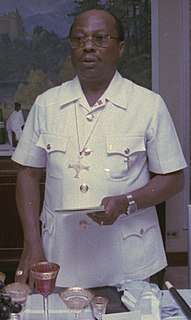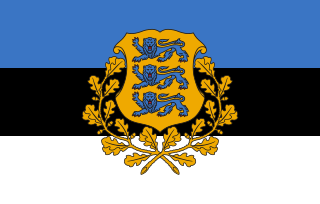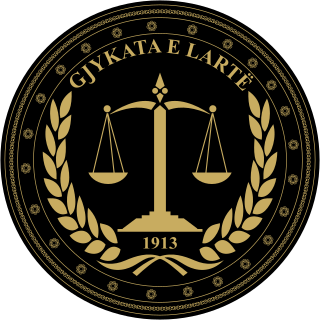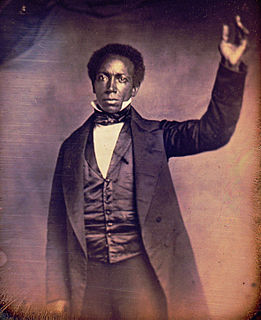
The President of the European Commission is the head of the European Commission, the executive branch of the European Union. The President of the Commission leads a cabinet of Commissioners, referred to as the college, collectively accountable to the European Parliament. The President is empowered to allocate portfolios amongst, reshuffle or dismiss Commissioners as necessary. The college directs the Commission's civil service, sets the policy agenda and determines the legislative proposals it produces.

The President of the Republic of Finland is the head of state of Finland. Under the Constitution of Finland, executive power is vested in the President and the Finnish Government, with the former possessing only residual powers. The President is directly elected by universal suffrage for a term of six years. Since 1991, no President may be elected for more than two consecutive terms. The President must be a Finnish citizen by birth. The Presidential office was established in the Constitution Act of 1919. Since March 1, 2012, the President of Finland has been Sauli Niinistö. In May 2017, Niinistö announced that he would seek re-election in the 2018 presidential election, running as an independent candidate. NCP and the Christian Democrat Party supported his candidacy. He won re-election in the first round on 28 January 2018 with 62.7% of the vote and his second term began on 1 February 2018.

The Governor of Texas is the head of the executive branch of Texas's government and the commander-in-chief of the state's military forces. The governor has the power to either approve or veto bills passed by the Texas Legislature, and to convene the legislature. The governor may grant pardons in cases other than impeachment or in the case of treason, with permission by the legislature. The current Governor is Greg Abbott.

The President of the Republic of Liberia is the head of state and government of Liberia. The president serves as the leader of the executive branch and as commander-in-chief of the Armed Forces of Liberia.

William Richard Tolbert Jr. was the 20th President of Liberia from 1971 until 1980, when he was killed in a coup d'état led by Samuel Doe.

The President of the Republic of Estonia is the head of state of the Republic of Estonia. The current President is Kersti Kaljulaid, elected by Parliament on 3 October 2016, becoming the first woman and youngest person ever who holds the position.

General elections were held in Liberia on 15 October 1985. These were the first elections since the 12 April 1980 military coup that brought Samuel Doe to power. During 1984, a new draft Constitutional referendum was approved, which allowed a 58 member civilian and military combined Interim National Assembly, headed by President Samuel Doe. The ban on political parties were lifted and four parties, namely, the President's National Democratic Party of Liberia, Liberian Action Party, Unity Party and Liberia Unification Party were in fray.

Federalist No. 71 is an essay by Alexander Hamilton, the seventy-first of The Federalist Papers. It was published on March 18, 1788, under the pseudonym Publius, the name under which all The Federalist papers were published. Its title is "The Duration in Office of the Executive", and it is the fifth in a series of 11 essays discussing the powers and limitations of the executive branch.

The House of Representatives is the lower chamber of the bicameral legislative branch of Liberia, and together with the Senate comprises the Legislature of Liberia. The number of seats is fixed by law at 73, with each county being apportioned a number of seats based on its percentage of the national population. House members represent single-member districts within the counties drawn up by the National Elections Commission and serve six-year terms. The House meets at the Capitol Building in Monrovia.

The Senate is the upper house of the bicameral legislative branch of Liberia, and together with the House of Representatives comprises the Legislature of Liberia. Each of the fifteen counties are equally represented by two senators, elected to serve staggered nine-year terms. The Senate meets at the Capitol Building in Monrovia.

William David Coleman was an American-born Liberian politician. A True Whig Party member, he was the 13th President of Liberia, serving from 1896 to 1900. Immigrating to Liberia in 1853, he worked his way up to election to the House of Representatives and served as Speaker of the House of Representatives from 1877 to 1879. Later he served in the Senate and then as Vice President before assuming the Presidency when Joseph James Cheeseman died in office.

James Skivring Smith was a Liberian politician who served as the 6th President of Liberia from 1871 to 1872. Prior to this, he served as the 8th Vice President of Liberia from 1870 to 1871 under President Edward James Roye and as Secretary of State from 1856 to 1860 in the cabinet of President Stephen Allen Benson. He was a member of the True Whig Party.
A midterm election refers to a type of election where the people can elect their representatives and other subnational officeholders in the middle of the term of the executive. This is usually used to describe elections to a governmental body that are staggered so that the number of offices of that body would not be up for election at the same time. Only a fraction of a body's seats are up for election while others are not until the terms of the next set of members are to expire. The legislators may have the same or longer fixed term of office as the executive, which facilitates an election mid-term of the tenure of the higher office.
A term of office is the length of time a person serves in a particular elected office. In many jurisdictions there is a defined limit on how long terms of office may be before the officeholder must be subject to re-election. Some jurisdictions exercise term limits, setting a maximum number of terms an individual may hold in a particular office.

The Constitution of Liberia is the supreme law of the Republic of Liberia. The current constitution, which came into force on 6 January 1986, replaced the Liberian Constitution of 1847, which had been in force since the independence of Liberia. Much like the 1847 Constitution, the Constitution creates a system of government heavily modeled on the Federal Government of the United States.

A referendum to amend the Constitution of Liberia was held on 23 August 2011. Voters chose whether to ratify four amendments regarding judge tenure, elections scheduling, presidential candidate requirements and the electoral system. The National Elections Commission of Liberia (NEC) oversaw the referendum.

The Supreme Court of the Republic of Albania is the highest court of Albania and is the final court of appeal in the judicial system of Albania. It is composed of seventeen judges, the Chief Justice and sixteen Members.

The President of the Palestinian National Authority is the highest-ranking political position in the Palestinian National Authority (PNA). The President appoints the Prime Minister of the Palestinian National Authority, who normally requires approval of the Palestinian Legislative Council, and who shares executive and administrative power with the President.

A constitutional referendum is scheduled to be held in Egypt from 20 April 2019 until 22 April. The proposed changes would allow President Abdel Fattah el-Sisi to remain in power until 2030; under the existing constitution, he would be barred from contesting the next elections, which are due in 2022.
















